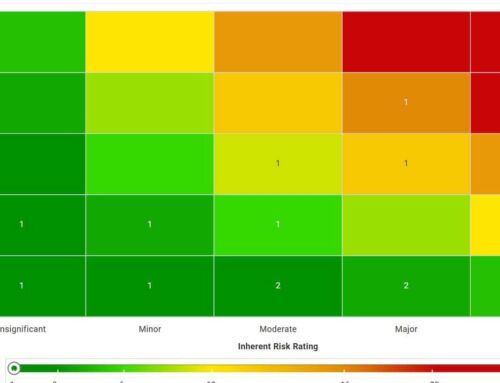What if internal audit disappeared?
Realizing the value of internal audit
Generally speaking, I’m a pretty sound sleeper. I’m typically plenty tired by the end of each day where falling asleep is not an issue. A pillow and 30 seconds is basically all I need. However, there are those times where sleep doesn’t come as easy as I would like it to. We’ve all had those situations where our brains get fixated on a thought and we can’t let it go. Problems need solving, thoughts require cultivation, and our brains couldn’t care less if it’s 2:00 AM. The trap I personally fall into from time to time is letting a thought enter my head that isn’t your average, run of the mill “solvable problem.” Instead, it’s a “What If.”
One of my favorite authors when I was a kid was Shel Silverstein, and he wrote a poem called “Whatif” where the protagonist lay in bed attempting to sleep, only to have the Whatifs crawl in his ear, where they “pranced and partied all night long.” The thoughts range from the trivial (“Whatif I start to cry?”) to the grave (“Whatif I get sick and die?”), but the overarching point is simple: It’s easy for us to get caught up in analyzing hypothetical situations and spiraling our way into a worst-case scenario.
From George Bailey’s view of a world without his existence in “It’s a Wonderful Life” to the surreally sleazy “Alternate 1985” in “Back to the Future II” to the darker story lines of books and television series such as “The Man in the High Castle” and the soon to be released “Confederate,” there is clearly a popular fascination with exploring the Whatif concept to varying degrees. I thought it would be interesting to take a similar approach with a concept we regularly explore on this blog: Internal Audit. More specifically, I was interested to explore the question, What if Internal Audit didn’t exist?
In exploring this thought, I realized that it would be best if I could get some perspective from folks who currently carry the torch of the IA profession, so I reached out to some friends to get their take on it. I think I was expecting them to frighten me with horrifying tales of a dystopian society where unethical behavior and fraudulent activity run rampant, flying in the face of all that is good in the world. Internal audit has disappeared…we are all doomed!
Much to my surprise, their responses painted a much more pragmatic and subdued picture. They acknowledged that unethical behavior will always exist, regardless of whether there is a real or perceived watchdog in place. People regularly perpetrate fraud in organizations with very strong IA departments, so IA in and of itself is not the lone deterrent. To take a more optimistic view, the overarching thought was that most people do behave ethically. Perhaps it’s equal parts sound character and fearful self-preservation, but many folks believe if you do the right things, more good things will happen.
My internal audit colleagues were also quick to point out that IA is typically one of many oversight functions that serve to monitor and evaluate an organization’s behavior. The overarching thought was that key stakeholders would still demand some degree of checks and balances, and that the other functions—second-line compliance and risk management, external audit, regulators—would naturally fill much of the void. From a personal and professional perspective, the auditors I spoke with were confident that their skill sets would find a home in one of these other functions that help provide this oversight. The world would not end. The responsibilities that IA assumes today would simply manifest themselves elsewhere.
So, if all this is true, if there would be no inevitable descent into utter chaos and anarchy, then what does IA bring to the table in our universe that prevents itself from becoming obsolete in an alternate one? On this topic, the answers were clear and consistent:
- Structure: The internal audit profession has built a foundation of principles, standards and ethics that govern the behavior of all practitioners.
- Consistency: As the governing organization for the profession, the Institute of Internal Auditors (IIA) makes these foundational elements accessible and relatable to all of its practitioners.
- Efficiency: While internal audit’s core responsibilities might be absorbed by other oversight functions, its very existence allows these other groups to remain focused on their core competencies while IA serves its oversight role.
- Continuous Improvement: The IIA’s motto is “Progress through sharing,” and the profession has created a culture of learning and continuous improvement and enhancement, which can lead to positive contributions to an organization’s success.
What did I learn from this visit with the Whatifs? Maybe the hypothetical worries that dance in my head aren’t as concerning as they seem in the middle of the night. Perhaps I need to place a bit more faith in human nature. And maybe we need to realize that certain worries are only hypothetical and can’t really hurt us, so sometimes it’s best to just close your eyes and get some rest.
About the author
Jason Rohlf
Vice President at Onspring
20 years Internal Audit & GRC experience






